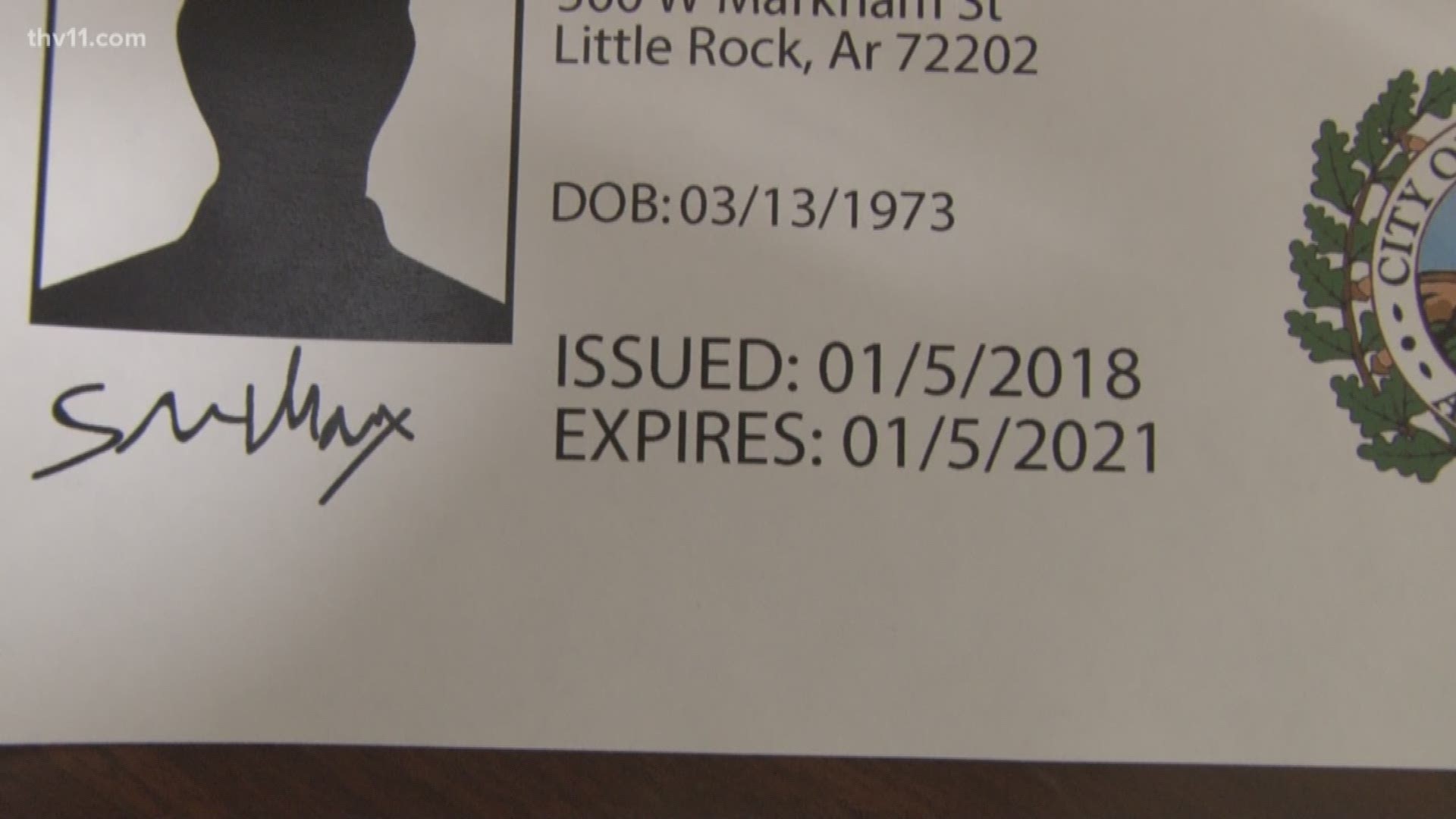The City of Little Rock is preparing to launch a new program that could make life easier for thousands of residents.
Beginning July 7, the city will start printing its own identification cards.
The ID cards come out of three years of discussions lead by Working Together in the Community, a group spearheaded by city director Joan Adcock and other community leaders.
“We’re very lucky to have the City of Little Rock having these new ideas, that can help not only the American citizens, but all the people that live here,” said Rodrigo Morales, a spokesman for the Mexican Consulate in Little Rock.
The mission of “Working Together” is to unite Little Rock neighborhoods, especially those with a high number of Spanish-speaking residents. The group’s formation was partially a response to a series of robberies committed against Hispanic people.
“People were afraid of the police,” recalled Maricella Garcia, the city’s multicultural liaison. “They didn’t necessarily know how to communicate directly with the police; there was a language barrier. But there was also a lot of people who didn’t have ID, who were afraid to go to the police because of that.”
Adcock, Garcia, and other city leaders coordinated by banks, the Little Rock Police Department, the local Mexican Consulate, and others to develop the ID cards. Since banks require identification to open an account, the ID cards could help reduce crime.
“You hear, sometimes, people talk about immigrants as ‘walking ATMs,’ because they know that they carry cash on them, and that has been a problem with robberies,” Garcia stated.
The cards will be available to anyone who wants one, not just immigrants. Garcia mentioned the elderly and the homeless might be likely to get them, since people in those groups might be less likely than most to have a driver’s license, but would also need an ID card. Many social services require identification, and people also need ID’s to apply for jobs.
Garcia said the new ID cards would not come with the same rights as a driver’s license, Passport, or military ID.
“We’ll have a disclaimer on the back of the ID that will say clearly that it’s not valid for federal or state identification purposes,” she explained. “It’s not valid to buy alcohol or tobacco, for example, or to fly. I think people understand that this is going to be a city program and that it’s for city purposes.”
Morales believes the card will be very useful in emergency situations. Garcia said applicants will have the ability to list an emergency contact when they sign up, along with any medical conditions they might have. That will allow first responders to treat them properly in the event of an illness or injury, and to reach a family member. Morales also mentioned that many hospitals and clinics will not treat patients without ID.
“If you’ve got a person who’s sick, or a lady that’s pregnant,” he said, “it would be of great help that they could get the medical care they need, and not be denied of medical care just because they don’t have an ID.”
The cards will also help ensure children go to school. To enroll in a public school, a parent must provide an ID card for their child to prove the child’s age. “And most of the times, kids are American nationals, not Mexican nationals,” Morales added. “So, it’s affecting, actually, also, American kids to get to school.”
Garcia said she hopes to make 5,000 cards in the first year and a half. She estimates that would cover 10 percent of the people who might need one.
The cards will cost $10 per person, but Garcia said many people will qualify for discounts. The cards will cost $7 for minors, seniors, veterans, and people with disabilities, and they will be free for the homeless, children in foster care, people staying in domestic violence shelters, victims of human trafficking, and anyone earning less than 50 percent of the poverty level.
Garcia said the first city to take this approach was New Haven, Connecticut, in 2007. She said the fact that New Haven continues to issue ID cards shows the value in it, but only a few other cities have joined the trend.
Morales said he hopes more will follow. “I think there’s, like, 13 or 14 cities that have done this already,” he mentioned. “But most of them are not in the South.”
Garcia said the cards will have several security features to discourage fakes and prevent identity theft. There will be watermarks and embedded holograms that she claimed could not be duplicated or altered. She also said the city will limit the data it puts on the card as well as the data stored on city servers to prevent someone from acquiring too much personal information via a Freedom of Information Act request.
“The card will have, for example, your name, your birth date, and your address,” she explained. “We won’t keep your birth date. We will keep your name, and we will only keep ZIP codes, to verify that you are a Little Rock resident. That’s what will be in our database.”
Applicants will be able to request a card at the multicultural liaison’s office, which will launch at the same time as the ID cards, at the Wakefield Resource Center (7414 Doyle Springs Road). Garcia said the equipment cost approximately $44,000, including two years of technical support. She said part of the reason it has taken so long to implement the program is that the city wanted to keep the residents’ data in-house, rather than outsource to a cloud-based platform.
An informational meeting will be held Saturday, April 21, from 10 a.m. until 12 p.m. at the Southwest Community Center (6401 Baseline Road). City officials will speak in both English and Spanish to answer any questions about the ID cards.

